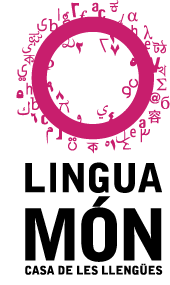Today’s word, library, comes from the Old French librairie, a ‘collection of books’, which is a nominal use of adjective librarius, ‘concerning books’, from Latin librarium, ‘chest for books’, from liber (genetive of libri), ‘book, paper, parchment’, originally the ‘inner bark of trees’, probably a derivative of Proto-Indo-European (PIE) base *leub(h) – ‘to strip, to peel’.
In French the word librarie means bookshop. A French library is a bibliothèque, which comes via the Latin bibliothēca, from the Greek βιβλιοθήκη (bibliothêkê), ‘a place to store books’, which breaks down into βίβλος (biblos), ‘book’, and θήκη (thêkê), ‘chest’.
Variations on the theme of bibliothèque are used in a number of other languages, including:
Dutch – bibliotheek
German – Bibliothek
Greek βιβλιοθήκη (bibliothiki)
Italian/Portuguese/Spanish – biblioteca
Russian – библиотека (biblioteka)
In Welsh, a library is a llyfrgell, from llyfr, ‘book’ and cell, ‘cell’, while in Irish it’s leabharlann, from leabhar, ‘book’ and lann (not sure of it’s meaning*). In Chinese, a library is 圖書館 [图书馆] (túshūguăn) = ‘map book house’.
It seems that the word library, or something like it, is not used in it’s English senses in many languages. The only ones I can find are Sesotho and Tswana (laeborari), Tsonga (layiburari) and Venda (laiburari), which appear to be loanwords from English. The Basque word for library, liburutegia, might possibly have Latin or Greek roots.
[Addendum] *lann in Irish is an archaic/obsolete word that means floor, enclosure or church. It comes from the Old Irish lann (building, house, land, plot, plate), from the Proto-Celtic *landā ((open) space, land), from the Proto-Indo-European *lendʰ- (land, heath). It is cognate with the Welsh word llan (church, parish, monastery, yard, enclosure, village), the Spanish landa (plain), and the English words land and lawn [source].
Sources: Online Etymology Dictionary, Wiktionnaire, Yawiktionary
